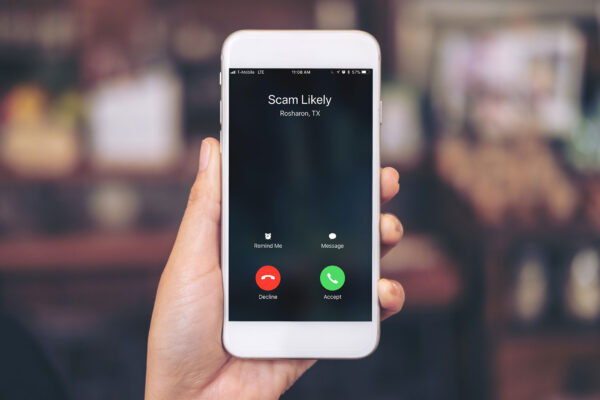Warning: 3456849135, +393511958453, 3409709183, 0289952272, +393511126529, 3469800477, +393319997840, +393773021998, +390669328449, +393473464731, 0697858700, +393512079596,
spam calls by being aware of potential sources of scams originating from Italian numbers. Learn how to identify and avoid such calls with our comprehensive guide. Stay safe from unwanted and fraudulent communications.
Introduction
In this digital age, technology has brought many conveniences to our lives. However, with these advancements come potential risks, and one such concern is the rise of spam calls. Recently, there have been reports of spam calls originating from Italian numbers that may deceive and defraud unsuspecting individuals. In this article, we’ll explore the warning signs and provide you with essential information to protect yourself from falling victim to these fraudulent activities.
Spam calls originating from Italian numbers have become a growing concern for phone users worldwide. Criminals have found ways to manipulate caller IDs and make it appear as though the call is coming from Italy, even when it’s not. This tactic aims to deceive recipients into answering the call, ultimately leading to potential scams and financial losses.
The Impact of Spam Calls
Receiving spam calls can have various negative effects on individuals. Aside from being annoying and disrupting our daily lives, these calls can also lead to identity theft, financial fraud, and privacy invasion. Many scammers use clever tactics to make their calls appear legitimate, making it challenging for recipients to identify potential threats.
How to Identify Potential Spam Calls
To protect yourself from potential spam calls originating from Italian numbers, it’s essential to be vigilant and cautious when answering calls from unknown or suspicious sources. Here are some tips to identify and avoid falling victim to spam calls:
1. Trust Your Instincts
If something feels off about the incoming call or the caller’s behavior, trust your instincts. If the caller puts pressure on you to share personal information or make immediate decisions, it’s likely a scam.
2. Check the Caller ID
Modern scammers can manipulate caller IDs to display misleading information, such as Italian numbers. However, if the caller ID seems strange or unfamiliar, it’s better to let the call go to voicemail.
3. Avoid Sharing Personal Information
Legitimate organizations won’t ask for sensitive information, such as Social Security numbers, credit card details, or passwords, over the phone. Be cautious and never share such information during unsolicited calls.
4. Verify the Caller
If the caller claims to be from a specific organization or company, hang up and verify their identity independently. Look up the official contact information for that entity and call them directly to confirm the legitimacy of the call.
5. Utilize Call Blocking Apps
Consider using call blocking apps or features on your phone to automatically filter out potential spam calls. These apps can identify and block suspicious numbers, providing an additional layer of protection.
The Rise of Call Spoofing
One of the most concerning aspects of spam calls from Italian numbers is the use of call spoofing technology. Call spoofing allows scammers to change the caller ID to display a different number, often one from Italy, misleading recipients into thinking it’s a legitimate call.
The Dangers of Call Spoofing
Call spoofing poses a significant risk, as it allows scammers to impersonate trusted organizations, law enforcement agencies, or even family members. They may claim to be from a reputable financial institution, government agency, or tech support, using persuasive tactics to extract sensitive information or payments from victims.
Protecting Yourself from Call Spoofing
While call spoofing can be challenging to prevent entirely, there are steps you can take to protect yourself from falling victim to this type of scam:
1. Be Skeptical of Incoming Calls
Maintain a healthy level of skepticism when receiving unexpected calls, especially if they request sensitive information or financial transactions. Always verify the caller’s identity before taking any action.
2. Educate Yourself and Others
Spread awareness about call spoofing and its potential dangers among your family, friends, and colleagues. The more informed people are, the less likely they are to fall for these scams.
3. Report Suspected Spoofed Calls
If you receive a suspicious call from an Italian number or suspect call spoofing, report it to the appropriate authorities or your phone carrier. Your report can help identify patterns and protect others from falling victim to the same scams.
FAQs (Frequently Asked Questions)
FAQ 1:
What should I do if I receive a call from an unknown Italian number?
Answer: If you receive a call from an unknown Italian number, it’s best to let the call go to voicemail. If it’s essential, they’ll leave a message. If it’s a potential spam call, blocking the number or reporting it as spam can help prevent further communication.
FAQ 2:
Can call blocking apps completely eliminate spam calls?
Answer: While call blocking apps can significantly reduce the number of spam calls you receive, they may not eliminate all of them. Scammers often use different phone numbers for each attempt, making it challenging to block every spam call.
FAQ 3:
What is the purpose of call spoofing?
Answer: The purpose of call spoofing is to deceive recipients into thinking that the incoming call is from a trustworthy source. Scammers use this tactic to gain victims’ trust and extract sensitive information or money from them.
FAQ 4:
How can I verify the identity of a caller claiming to be from a specific organization?
Answer: To verify the caller’s identity, hang up the call and look up the official contact information for the organization they claim to represent. Call that organization directly and inquire if they tried to contact you.
FAQ 5:
Is call spoofing illegal?
Answer: Yes, call spoofing is illegal in many jurisdictions, as it involves manipulating caller IDs to deceive recipients. It’s essential to report instances of call spoofing to the authorities to help combat fraudulent activities.
FAQ 6:
Can I protect myself from call spoofing entirely?
Answer: While it’s challenging to protect yourself entirely from call spoofing, staying informed, and following the tips mentioned earlier can significantly reduce your risk of falling victim to this type of scam.
Conclusion
Spam calls originating from Italian numbers can be a potential threat to individuals, leading to financial loss and privacy invasion. By being cautious, verifying callers, and spreading awareness about call spoofing, we can collectively combat these scams and protect ourselves and our loved ones from falling prey to fraudulent activities. Stay vigilant and prioritize your safety in an increasingly digital world.





